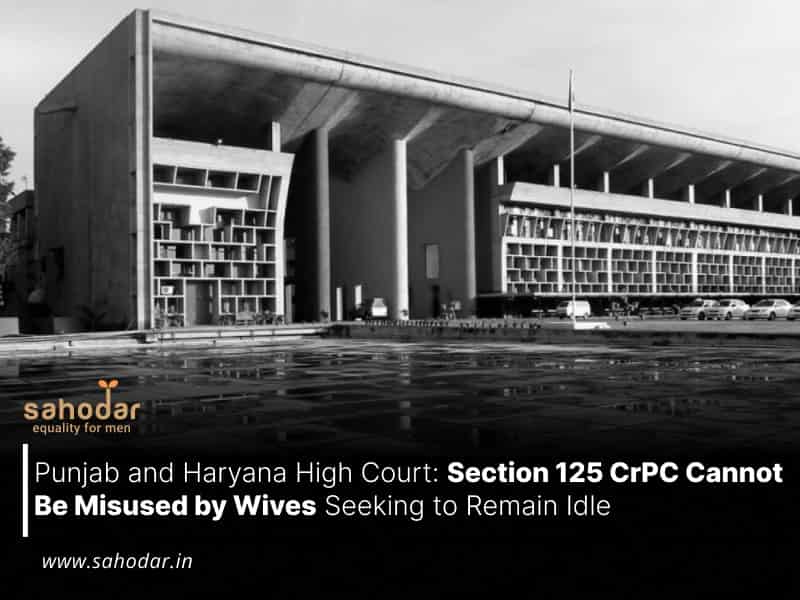The High Court upheld a family court’s decision to dismiss a woman’s plea for interim or final maintenance from her husband.
The Punjab and Haryana High Court recently stated that the maintenance provision under Section 125 of the Criminal Procedure Code (CrPC) should not be misused by physically capable wives who choose to remain idle at home.
Justice Nidhi Gupta made this remark while upholding a family court’s decision to reject a woman’s request for interim or final maintenance from her husband.
“The purpose of Section 125 Cr.P.C. is to protect abandoned wives who are unable to maintain themselves from vagrancy and destitution. The said provision cannot be permitted to be misused to allow able bodied wives to sit idly at home while the husband works, earns, looks after the day to day, emotional, financial and physical requirements, and maintains the minor children as also his other dependent family members,” the Court observed.
The woman asserted that she was an unemployed villager, while her husband worked as a mason in a factory, earning ₹12,000 per month.
Her counsel further contended that she had been subjected to violence by her husband and in-laws over dowry demands, and that an FIR against them was still pending.
It was argued that the family court dismissed her maintenance plea solely because she failed to provide details about the birth of her son, having only mentioned her daughter.
After reviewing the case, the Court observed that the couple got married in 2010 and had two children during their marriage. Due to marital discord, the wife has been living separately since July 2014.
In November 2014, she filed an application under Section 125 CrPC seeking maintenance from her husband.
“On the basis of the oral and documentary evidence led before it, the learned Family Court has returned the clear finding that it is the petitioner who had deserted the matrimonial home without sufficient cause,” the Court noted.
After reviewing her cross-examination before the trial court, the Court concluded that her own statements indicated she had no desire to live with her husband.
The Court also noted that she did not file any application for the custody of their minor children, who were between 1 and 3 years old at the time she left the matrimonial home.
“Clearly, therefore, under the above Section 125(4) Cr.P.C., the petitioner is not entitled to maintenance,” it said.
Additionally, the Court highlighted that there was no evidence to support the claim that the husband earned ₹12,000 per month. Instead, it noted that the Family Court had determined he was employed in a private job, earning only ₹6,000-7,000 per month.
“Besides that, the respondent is also maintaining the minor children along with his old, aged mother. On the other hand, the petitioner has no such responsibility. The petitioner is living separately at her parental home. Admittedly, the petitioner is able bodied. However, she claims to be not working,” it added.
The Court held that it is primarily the petitioner’s responsibility to support herself and, therefore, dismissed her plea.

